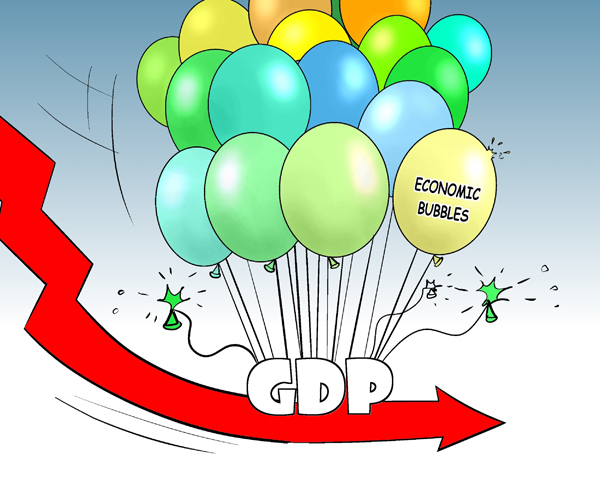Please stop panicking, Mr. Soros
- By Sumantra Maitra
 0 Comment(s)
0 Comment(s) Print
Print E-mail China.org.cn, February 2, 2016
E-mail China.org.cn, February 2, 2016
|
|
|
Driving forward growth [By Jiao Haiyang/China.org.cn] |
While reluctantly covering Davos, as international relations professionals have to do, I wrote elsewhere that Davos WEF 2016 highlighted a panic of the elites. Meanwhile, Investor George Soros predicted a hard landing for China's economy, which will result in global meltdown. He told Bloomberg TV from Davos, that "…a hard landing is practically unavoidable." In an analysis which sounded extremely deterministic, he further mentioned, "I'm not expecting it, I'm observing it. China can manage it. It has the resources and a greater latitude in policies, with US$3 trillion in reserves," reported Reuters. According to Soros, China will cause deflation, as oil prices will continue to fall. He also said that Russia is in its death throes, with enough reserves to last for only a few years. China hasn't obviously taken too kindly to this.
Now, speculating China's economic demise is something which is fairly common, so common that it happens every fortnight, which might give the readers an idea on how poor these predictions are. However, that's a different issue. Last month, National Interest predicted after the Chinese Central Economic Work Conference, that the growth rate is predicted to fall, which is nothing new, as even Chinese policy makers have predicted that, and there is a viable explanation for it. It is just not possible to maintain a growth rate of over 8 percent for three decades.
Given the fact that the new growth rate also hovers around 6 to 7 percent, I would say that's actually pretty good, something other countries would be proud to match up to. There's no evident threat to the Chinese economy, and there's no cause to be so worried. The sky eventually falls down on every economy, and once a major player's economy reaches optimal level, there comes long term sluggish growth and sometimes even stagnation, but that time is not here yet.
First of all, in economics, when a pivotal change in hinge points occurs, it is reflected in massive and disproportionate growth rates. The same thing happened with China, when it underwent a tactical change from a primarily agricultural to an industrial economy. China's GDP growth reflected this change, as China changed its workforce from over 80 percent in the agro sector to a more modernized manufacturing based economy. In fact, Beijing realized and said early on in this decade that the growth rate is not sustainable and sooner or later it needs to stabilize to a slower pace. In order for that to happen, a few structural changes were recommended.







Go to Forum >>0 Comment(s)